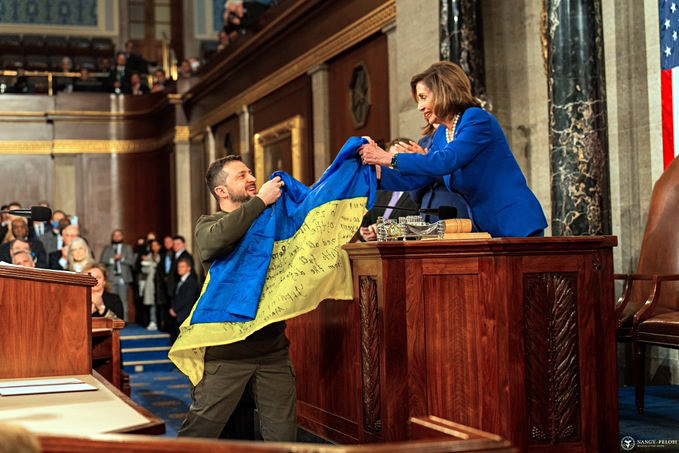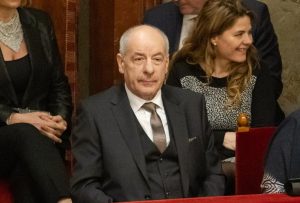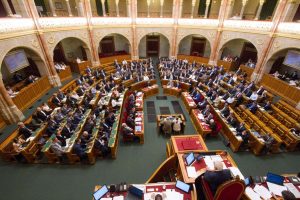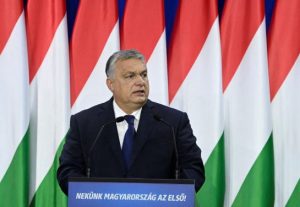Hungary has injected itself between Ukraine and Russia by seemingly facilitating the release of 11 Ukrainian prisoners of war….reports Asian Lite News
Hungary has gradually diverged from the EU’s foreign policy agenda when it comes to Ukraine, angering Kyiv and further straining their relationship.
Hungary has injected itself between Ukraine and Russia by seemingly facilitating the release of 11 Ukrainian prisoners of war. Captured by Moscow during its ongoing invasion of Ukraine, the POWs were transferred to Hungary earlier this month, with the help of the Russian Orthodox Church.
They belong to Transcarpathia, a region in western Ukraine home to a large Hungarian community. It remains unclear how the exchange took place, with some officials in Budapest completely denying any Hungarian government involvement. Foreign Minister Péter Szijjártó said the “Hungarian state did not participate in the exchange.”
Three of them have already returned to Ukraine, while Kyiv has claimed they are unable to contact the remaining 8 POWs, accusing Hungary of blocking access. The European Union has demanded that authorities in Budapest clarify the circumstances of the exchange.
“We believe that Hungary did not consult with Ukraine, and that the case was handled in a way that was not agreed with them. However, this issue should have primarily belonged to Ukraine, since it is mostly about their citizens,” EU spokesperson Peter Stano said on Wednesday.
Unilateral diplomatic efforts between Hungary and Russia could be perceived as a means to undermine the collective effort by the EU to pressure Moscow into backing down from the invasion of its neighbour.
According to media reports, the POWs are Ukrainian citizens of Hungarian ethnic backgrounds from the Transcarpathian region of the country.
“There has been a cacophony of messages that have come out related to this incident, and it is hard to discern what is and what isn’t true,” Péter Krekó, the director of Political Capital Institute and a senior fellow at the Center for European Policy Analysis, said.
“The Hungarian government has claimed they have no knowledge about this, that they weren’t even aware it was happening. But the deputy PM, Zsolt Semjén, the head of a Fidesz satellite party, boasted that he was involved in the process,” Krekó continued.
“Imagine if the whole secret service and the government are unaware of the fact that the Russian Orthodox Church and the Hungarian Charity Service of the Order of Malta were bringing over 11 POWs from Russia?” he exclaimed.
Patriarch Kirill of Moscow, the head of the Russian Orthodox Church, awarded Semjén – who leads the Christian Democratic People’s Party, which is in a coalition with Orbán’s Fidesz – the Order of Glory and Honour Second Class in September of last year.
The head of the Russian Orthodox Church’s branch in Hungary, Metropolitan Hilarion, bestowed the order onto Semjén to “commemorate Semjén on his 60th birthday and recognise his assistance to the Diocese of Budapest-Hungary.”
Ever since coming to power over a decade ago, Prime Minister Viktor Orbán has fostered a romanticised idea of helping Hungarians that live in Europe outside the country’s borders.
Ethnic Hungarians are found in countries that were once part of the Kingdom of Hungary, including Slovakia, Slovenia, Romania, Serbia, Croatia, and Ukraine.
The Treaty of Trianon, which was drafted during the Paris Peace Conference after World War I, foresaw the independence of these countries and shrank Hungary’s borders to what they are today.






